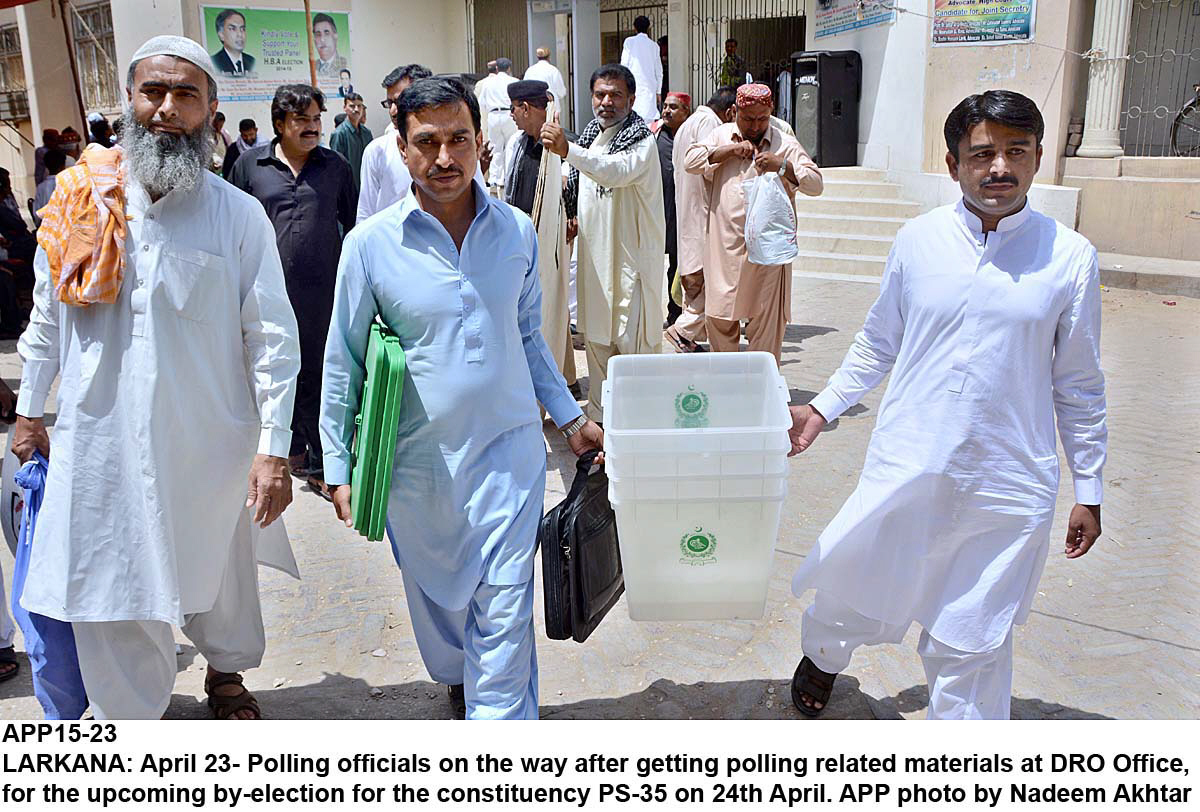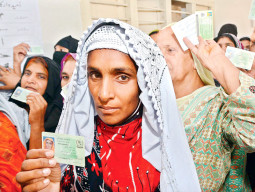
JAMRUD:
Residents of NA-46 in Khyber Agency will need to queue up at polling stations and get ink on their hands yet again. An election tribunal nullified the results of re-polling which took place at 21 stations during the summer of 2013 and asked for another re-election in the constituency.
Voting was brought to a halt on May 11 after allegations of rigging and violence erupted at more than one polling station. Afterwards, independent candidate Hamidullah Jan Afridi asked the Election Commission of Pakistan for a re-poll in light of the alleged misconduct.
After round two of NA-46 polls, candidate Nasir Khan Afridi emerged as the winner, followed by Pakistan Tehreek-e-Insaf’s (PTI) Iqbal Afridi while Hamidullah stood third. Those results were then challenged yet again by Hamidullah and Iqbal at a FATA Tribunal. The deciding body declared the second rounds of results void. It decided to poll NA-46 again; a decision much celebrated by Nasir Khan’s opponents.
Nasir, however, retaliated by challenging the verdict of the tribunal at the Supreme Court of Pakistan which subsequently gave a stay order for the third round of voting. The announcement regarding the re-election schedule is pending the court’s next orders.
Voter fatigue
There are 175,000 registered voters in the constituency but May 11 saw an extremely low turnout. Very few women came to vote. Round two fared no better, thanks to a precarious security situation. As far as controversial elections go, the ones in Bara in 2008 were also challenged when Awami National Party (ANP) candidate Saeed Afridi was defeated by Hamidullah. The latter was accused of manipulating the voting process with the help of the political administration. The case continued well into 2013 but no conclusive result emerged.
While election results in 2002 were not contested after a joint candidate from Jamaat-e-Islami (JI) and Jamiat Ulema-e-Islam (JUI-F) won with a majority, the same candidate was later embroiled in allegations of horse-trading during former military dictator Pervez Musharaf’s vote of confidence in the National Assembly.
Round three
Before the Supreme Court’s stay order, Iqbal Afridi and Hamidullah had revved up their campaign engines, setting up election offices and attending corner meetings. The stay order came as a damper.
Earlier, Pakistan Muslim League-Nawaz candidate Sohail Afridi called off his campaign after alleged threats from militants, stated reports. According to Adviser to the Prime Minister Amir Muqaam, the party has not allocated a ticket to any candidate as yet.
However, it is expected that if the re-elections are to take place, all parties will field candidates – another change from the past when most of the tribal agencies’ candidates would contest elections as independents. Nonetheless, winners from both NA-45 and 46 were independent candidates.
Suffrage
The year 1997 was the first time tribesmen were given the right to vote and they participated enthusiastically, voting independent candidate Abdul Latif Lala into the NA seat with a clear margin. At that point Khyber Agency was one constituency – NA-33. Later Bara was separated from the whole and included in NA-46. Jamrud and Landikotal became NA-45. According to social activist Irfan Afridi, a member of the Koki Khel tribe, prior to 1997, representatives would be elected by clan elders, based on generous bribes. “The person with the most wealth would usually be elected as the representative,” said Irfan.
The right to vote came to the tribal area after several youth movements, shared the activist. Giving examples of how previous representatives were chosen, he explained Muhammad Shah Afridi, who was selected by the elders in 1993, “purchased (the support of) most of the elders of Jamrud, Landikotal and Bara.” Waris Khan Afridi, who was selected to lead the agency in 1988, was not very rich but had friends with deep pockets, shared the activist.
Published in The Express Tribune, April 26th, 2014.




























































COMMENTS
Comments are moderated and generally will be posted if they are on-topic and not abusive.
For more information, please see our Comments FAQ